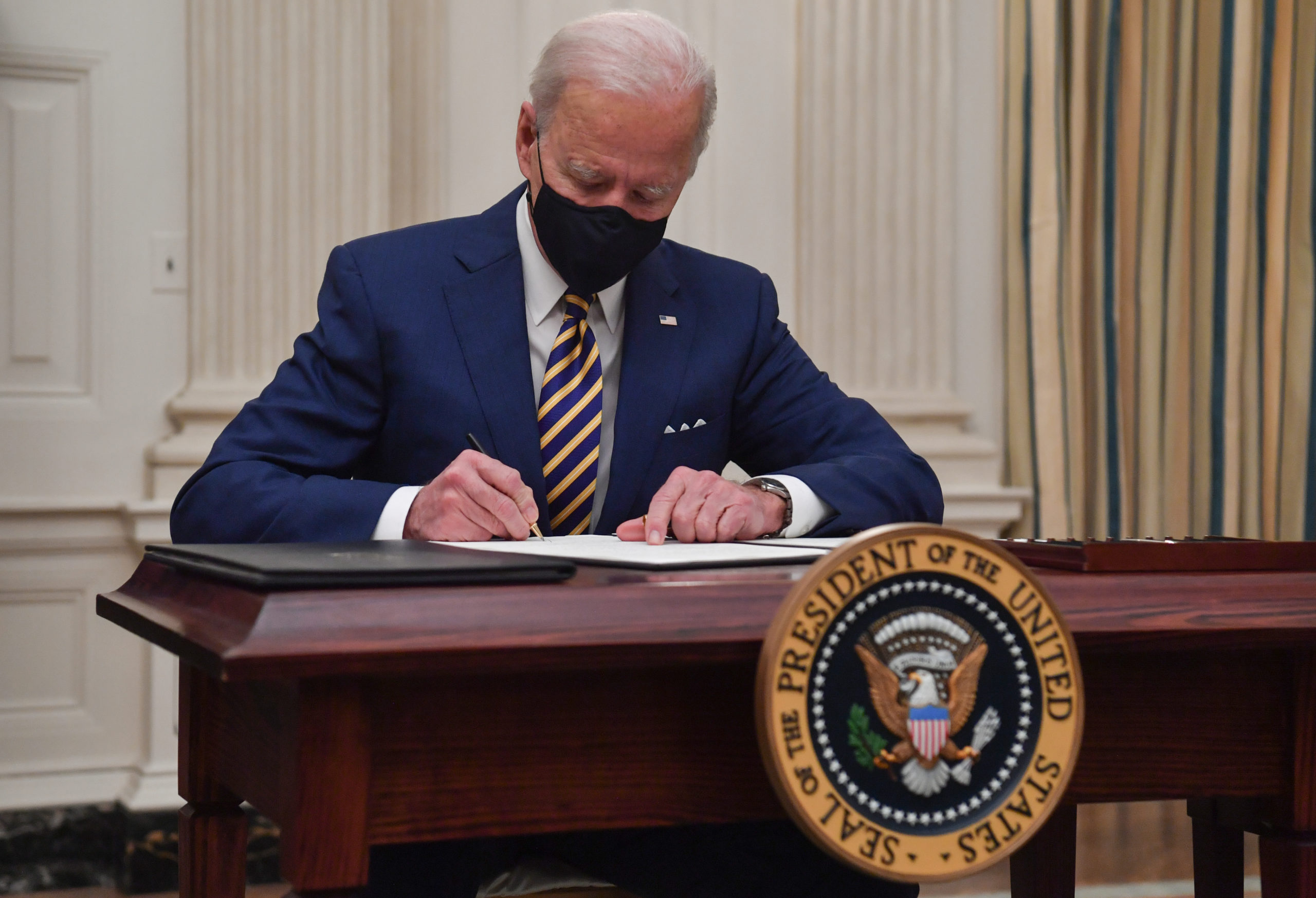
Biden: revisiting car CO2 standards to start EV era

US President Joe Biden signs executive orders for economic relief to Covid-hit families and businesses in the State Dining Room of the White House in Washington /AFP
It looks like America's 46th President, Joe Biden, started from day one to work on a new 'electric' era for the auto industry. During his ca


Comments
Ready to join the conversation?
You must be an active subscriber to leave a comment.
Subscribe Today